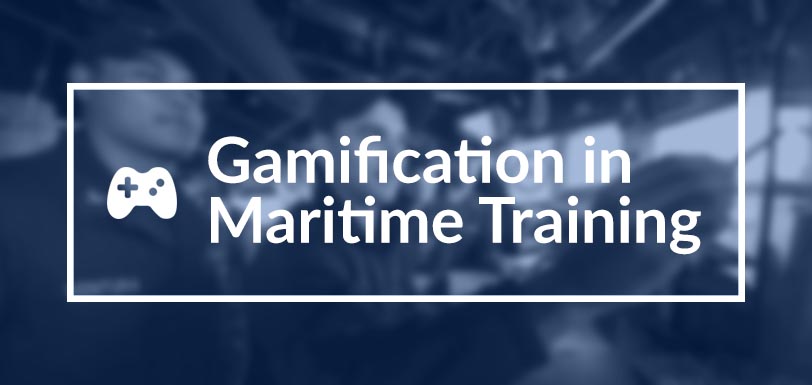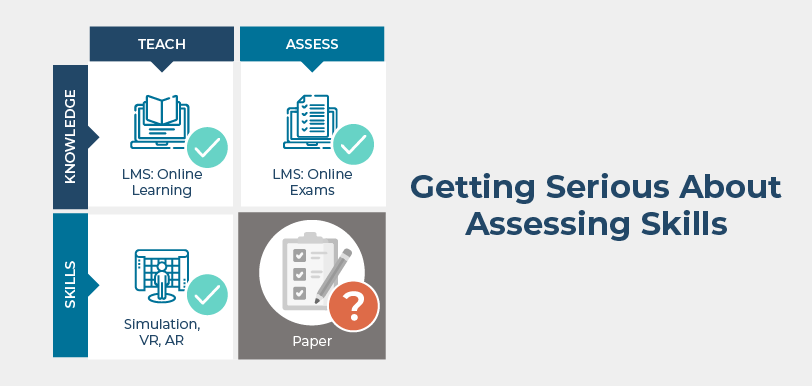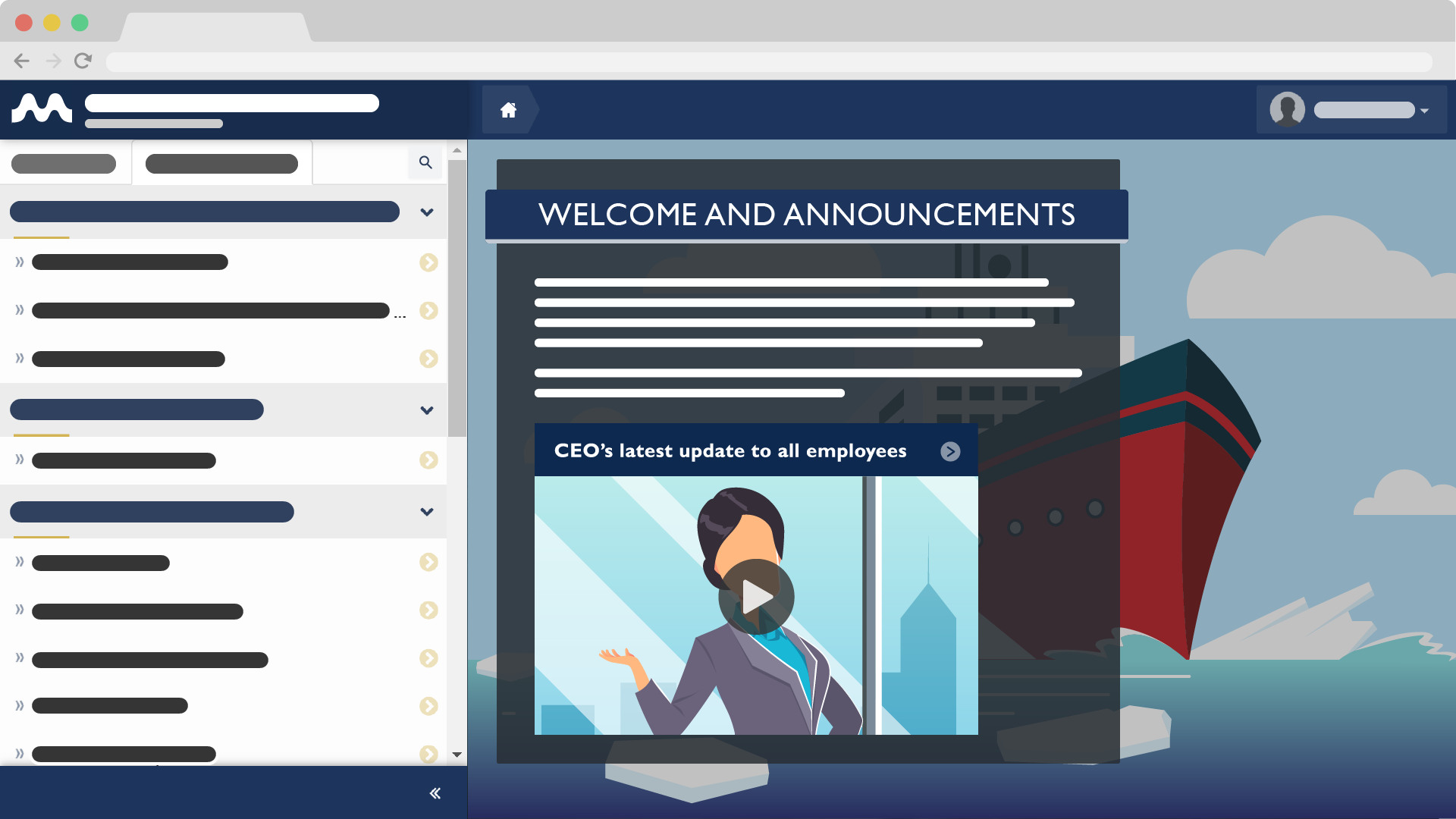Gamification in Maritime Training – Serious Training or Just Play?
Apr 5, 2017 Murray Goldberg 2 Gamification, Maritime Training, Training ContentThis week’s post continues the blog series on eLearning media choices. We will look at the use of games as an educational tool (also known as “serious gaming” or “gamification”) for the maritime industry.
To recap, the first article looked at the use of text in maritime training content. The second article focused on the fact that there is no single “best” choice for training. It also examined the best way to combine media for training. The third article looked at how to choose media. It explored the strengths of text, imagery, audio, video and simulations in a maritime training environment.
This article is the first of two which introduce gamification as a maritime training technique. The second article will look at examples of serious games – both in the maritime industry and elsewhere. If you would like a notification when the blog us updated, please sign up for email updates here.
Now – on to gamification.
Gamification
What is gamification or a “serious game”? The breadth of software that these terms are applied to can vary widely. In general, a serious game is any game-like program with a primary intent besides simple entertainment. For this blog, we will restrict ourselves to programs which have some “reward system” and a primary intent of training.
To give you an idea of what a serious game might look like, consider a typical bridge simulator where a trainee must perform a set of navigational tasks.
Now, add a requirement for the trainee (the “player”) to achieve a certain level of competency (a “score”) on the current task (the “game level”) in order to progress to the second task (the “next level”). The number of attempts to pass each level and score achieved is then recorded. These numbers are posted on a global site for all other trainees (“players”) to view. The navigational tasks are team based and that members have positions and individual “player profiles”. This allows for each team member to compete against members of other teams.
You get the idea.
We have now taken a traditional simulation exercise and introduced a “reward system”. This particular reward system consists of scores, the opening of new levels, and the desire to compete.
And while reward systems are not the only feature of serious games, they are generally a central component. So central, in fact, that this is a good time to discuss them.
Reward Systems
What, exactly, is a reward system?
A reward systems is a means by which the player gains an explicit or implicit reward by succeeding. An example of an explicit reward is a score or points. A player can demonstrate improvement by beating their previously highest score. Another explicit reward system is community scoring where people compete to get the higher score. Still another explicit reward is gaining access to new game areas or functions by virtue of good performance. We saw examples of all these rewards in our mock navigation game above. Some games even have tangible rewards such as prizes for top performance.
Games can also have implicit reward systems. This is where the boundary between “game” and “not game” gets harder to define. For example, an implicit reward may be the satisfaction of completing a difficult game task or learning something new.
The Argument for Serious Games
So – what is the point of serious games? We already have online learning and simulation. What does gamification bring to the table?
If you believe proponents of serious games, there are numerous benefits. They include increased motivation, increased engagement, and the teaching of complex content that is difficult to teach otherwise.
Let’s look at these.
Motivation and Engagement
Traditionally, trainees are motivated by the desire to earn a credential, pass an exam, or get a job. Most are also motivated by the desire to perform their work safely and efficiently.
What if we could add another layer of motivation? Motivation which causes trainees to “study” much more than they otherwise would? What if we could create a learning experience which engaged them so deeply that learning was not “hard drudgery” but instead “hard fun”?
Note: Hard fun is not a term I made up – it is a concept meant to illustrate that “fun” does not always have to mean “easy”. Sometimes the most rewarding kind of fun is is difficult.
If we are able to increase motivation and engagement, then trainees enjoy training, spend more time mastering it, and often go well beyond the levels of learning normally required.
Complex, Dynamic Content and Higher Order Thinking
Motivation, while critically important, is not the only possible benefit of serious games. Serious games also have other interesting educational attributes.
For example, serious games can be used to teach complex, dynamic concepts by engaging groups of people in the learning experience. Teamwork and team dynamics can be experienced by a group of students with a game which requires the team to achieve a goal together. This game emulates the teamwork needed in a work environment. This allows members to experience personalities and real team dynamics in person. In addition, the game’s goal encourages actual effort.
Serious games also require higher order thinking skills such as risk/reward weighting and thinking through problems as a whole and in detail (considering each sub-goal). Compared with a conventional learning experience, it is easy to believe that a lot more “thinking” goes on when learning through serious games.
Do They Actually Work?
The adoption of serious games is less wide-spread than typical eLearning. As such, while there is some research analysing their effectiveness, the evidence is not as conclusive as it is for eLearning.
The best evidence usually comes from meta analysis of research. A meta analysis looks at a large number of individual studies and determines whether there is a general agreement. For example – there is a tremendous amount of research on eLearning effectiveness. A well known meta-analysis concluded that eLearning was as effective as classroom learning, and produced even better results when combined with other forms of learning. Unfortunately, I have not been able to find a similarly conclusive meta analysis of serious games.
The most recent meta analysis I have found is one by Girard, Ecalle and Magnan titled “Serious games as new educational tools: how effective are they? A meta-analysis of recent studies”. The abstract, which is available to all, reads in part:
“After pointing out the varied nature of the obtained results and the impossibility of reaching any reliable conclusion concerning the effectiveness of [Serious Games] in learning, we stress the limitations of the existing literature and make a number of suggestions for future studies.”
What they are saying is that the existing research is too varied to arrive at a firm conclusion.
It is important to note that they are not saying that serious games are ineffective. In fact, there are many individual research studies which say serious games improve participation rates, improve teamwork, increase time on task, cause trainees to return to training more often, and improve training completion rates.
If we take the view that serious games are simply simulations with reward systems, then we cannot help but conclude that they can be very effective (since we already understand the effectiveness of simulation in maritime training). As such, while it is reasonable to conclude that well designed serious games are effective learning tools, it is true that the research is still emerging.
Serious Games Do Work – Ask the Users
Despite the need for continued research, users of serious games are very convinced of their effectiveness. That group of users is large and growing rapidly. It contains some very impressive members, such as the military, the aviation industry, researchers, and yes – the maritime industry.
Some of the examples are very interesting and, I think, worthy of covering. Therefore, the next blog post will provide some examples of the serious game projects in use now, both in the maritime industry and elsewhere. I find them to be fascinating. I am sure you will as well. If you would like me to send you a notification when that article comes out, please sign up for notifications if you have not already done so.
Until then, thanks for reading and keep safe!
Follow this Blog!
Receive email notifications whenever a new maritime training article is posted. Enter your email address below:
Interested in Marine Learning Systems?
Contact us here to learn how you can upgrade your training delivery and management process to achieve superior safety and crew performance.







Gamification- YES. Whatever training schemes that will help the trainees to retain knowledge and skills acquired, why not?
Also about the FLIPPED learning that Mr. Goldberg was emphasizing before, I think its best to apply it to blended learning.
Interesting post!
We created a gamification system for IT ( https://getbadges.io ).
This is a tool for IT departments and it can solve problems with engaging testers, pm’s and programmers with their everyday work. Like similar solutions Achievers or OfficeVibe, people are engaged by receiving rewards and recognition. But unlike them is dedicated for motivating technical staff.
I’m very curious of your opinion